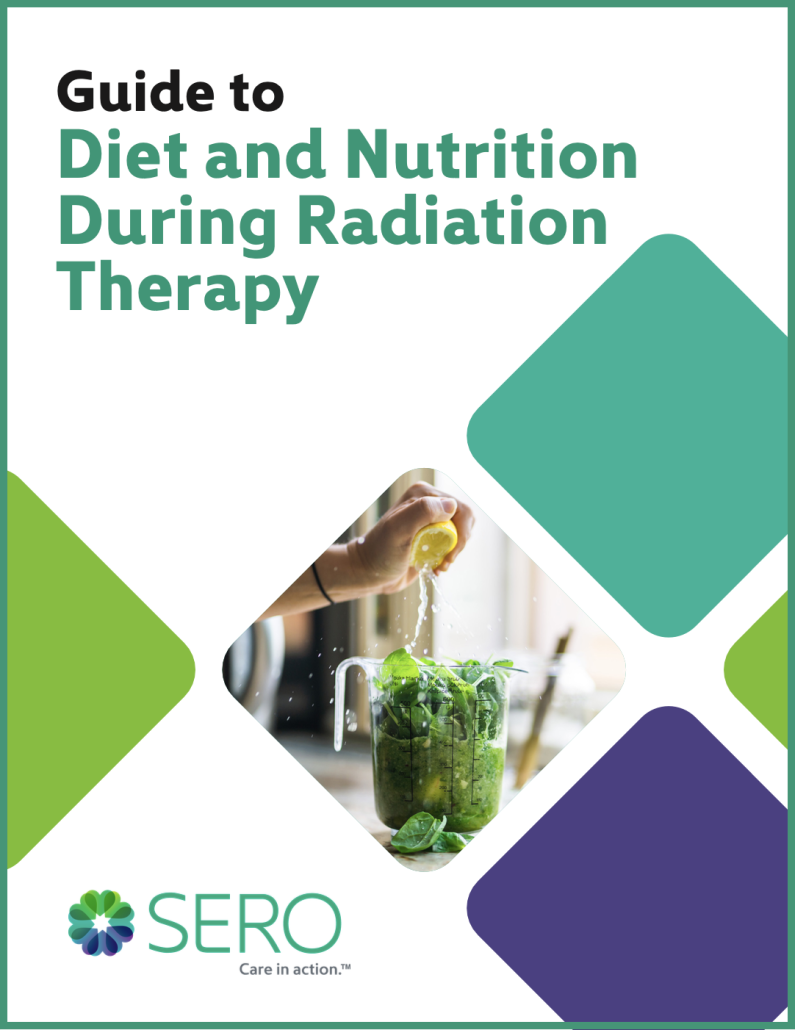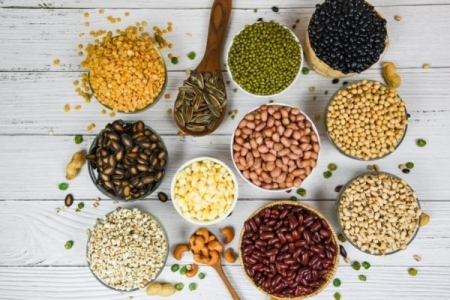Radiation therapy is a type of cancer treatment that shrinks and destroys cancer cells. During radiation, it’s important to eat well. A proper diet for radiation therapy keeps the body and its immune system strong, giving it the nutrients it needs to promote the regrowth of healthy tissues. Eating well during radiation also maintains energy, helps patients tolerate radiation side effects, lowers risks of infection, and speeds up recovery.
“Food is a part of the medical treatment during cancer therapy,” says Shayna Komar, a registered dietician specializing in oncology. “It helps support a patient’s immune system and decreases side effects. Radiation can be tiring and tough on the body. What a person eats will help keep them strong enough to get the treatment they need.”
However, the nutrients and foods a person needs during cancer treatment vary based on the individual, how their body responds to radiation, the treatment area, and the length of treatment. While there is no one-size-fits-all radiation diet, there are some guidelines and tips that can help you find the best one during your cancer treatment.




